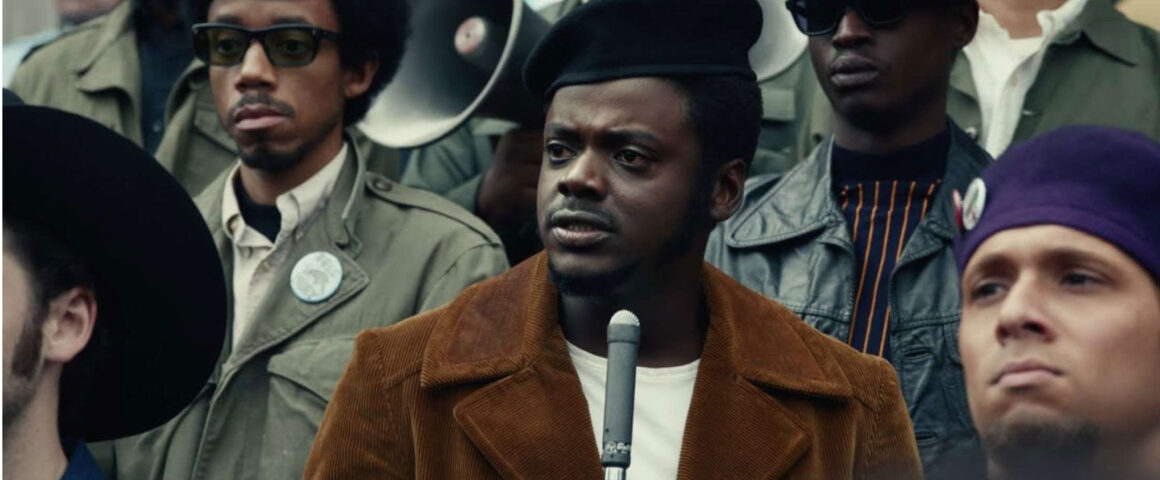We are part of a fortunate and collective audience. Through films, we can go back in time and we be part of history by the recreation of our past, as dark and uncomfortable as it may be. I believe the exposure to our past — especially by younger audiences — is essential. By exploring the events that shaped our present, we can better understand the progression of values. Of course, this also involves recognizing the stains in our supposedly civilized society. One of these social calamities is racism. And it is racism (and betrayal) that runs deep inside the heart of Shaka King’s Judas and the Black Messiah.
Chicago, late 1960s. Fred Hampton (Daniel Kaluuya, “Widows”) is leading the Black Panther Party into an impressive coalition with other social organizations that sought similar goals. Every one of these organizations is seen as a dangerous element to the FBI, directed by an enraged J. Edgar Hoover (Martin Sheen, “Rules Don’t Apply”).
William O’Neal (LaKeith Stanfield, “Uncut Gems”) is only 17-years old when he gets arrested after posing as a federal officer. A special agent of the federal bureau (Jesse Plemons, “Game Night”) makes an offer to O’Neal: He can drop the charges (and actually pay O’Neal) if he works undercover for him. O’Neal accepts, the difficult mission is to infiltrate the growing party led by Hampton. As the coalition grows, so does O’Neal’s standing within the the organization. He gets a glimpse of Hampton’s radical views and methods. When the party realizes there is a mole on the inside, O’Neal takes notice of the dangers of what he’s doing. When he attempts to quit, he realizes he can’t. His last mission is the most dangerous, and he doesn’t know if he’ll be able to do what he’s asked. But refusal is practically a death sentence, carried out by either side . . .
Judas and the Black Messiah is powerful in its conveyance about the different types of power vying for power inside a potentially explosive nucleus. It’s not simply about two men facing off and fighting for what they believe in. I’m clarifying this because posters and trailers may confuse some viewers. It’s more about a dangerous message (to some) being communicated and the unavoidable (and more often than not, deadly) consequences for such a message. The tension is palpable as we wait for the inevitable crash to arrive, and once it does, the premeditation is deafening. It’s an adaptation of the side of history being regurgitated in present times. It’s never been more relevant than it is today.
Daniel Kaluuya and LaKeith Stanfield both deliver powerful performances of two men on opposing sides of the issue. While Stanfield is the more muted of the pair, Kaluuya puts forth a powerful presence in every scene he appears in. Whether quietly contemplating his next move or delivering an inspiring war-cry speech, his embodiment of the ill-fated Illinois Black Panther Party chair grips and never lets go. Dominique Fishback (“Night Comes On”) as Deborah Johnson, Hampton’s girlfriend, is also outstanding in her role. Though she could have been awarded more screen time, she softens Hampton’s rough edges with love and support.
For all its good, the film’s final moments feel rushed, however. The dilemma is quite clear and the end result is known well in advance, but there is almost no sense of closure. We’re supposed to condemn O’Neal for his treasonous acts, right? Nonetheless, Judas and the Black Messiah is a good contribution to cinema’s catalogue of dramatizing historic events. If for no other reason than its timeliness.



